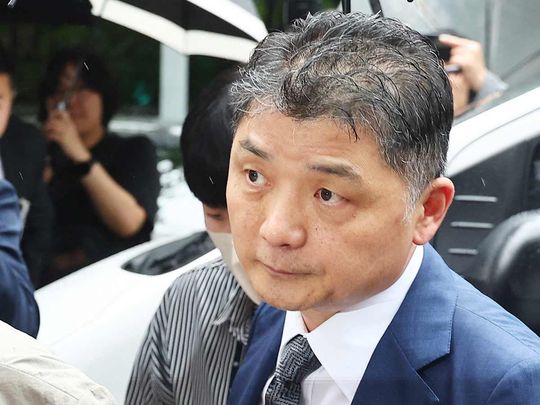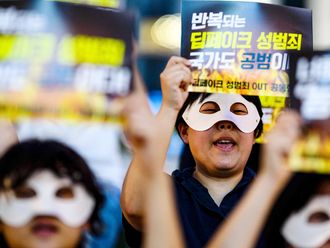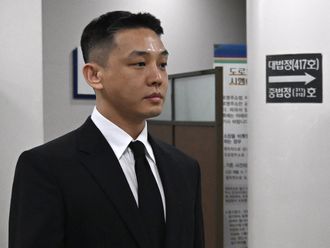
Seoul: The billionaire founder of South Korean internet conglomerate Kakao was arrested early Tuesday, a Seoul court said, accused of manipulating stock prices during the acquisition of K-pop powerhouse SM Entertainment.
Founded in 2010, Kakao has grown to be a sprawling empire and owns everything from a major online bank to South Korea's largest taxi-hailing app, plus KakaoTalk - the country's biggest messaging app which is installed on 90 per cent of phones.
It also has a vast entertainment portfolio, encompassing music labels and talent management, which it augmented significantly last year by securing a controlling 39.87 per cent stake in SM Entertainment, becoming its largest shareholder.
Prosecutors accuse Kakao of buying 240 billion won ($173 million) worth of SM shares on 553 occasions in February 2023 at inflated prices in a deliberate effort to thwart a takeover bid by HYBE, the agency behind K-pop megastars BTS.
HYBE had purchased a 14.8-per cent stake from SM's founder, Lee Soo-man, and proposed buying more shares at 120,000 won each, but withdrew its attempt after SM's stock prices soared.
The Seoul Southern District Court approved an arrest warrant for Kakao founder Kim Beom-su, citing risks of him fleeing and destroying evidence, it said in a statement.
Authorities have also questioned other Kakao executives, prosecutors said.
At an emergency Kakao group meeting last week, Kim said that it was a "pity" that the situation had occurred while "group members are working together to renovate management and innovate AI-based technology".
He later said the charges against him were "not true".
"I believe the facts will be revealed in the end as I have never ordered or tolerated any illegal activities," Kim said, according to a press release sent to AFP by the company on Tuesday.
Experts said that the detention of the firm's head could cause problems for the company.
"Kakao's AI-based innovation will likely meet difficulty due to the absence of the head of the company, and the group will have to focus its efforts on eliminating total risk and judicial risk," said Choi Kyoung-jin, a law professor at South Korea's Gachon University.
"The risk of the group due to the leader being absent from Kakao will probably continue for a considerable period of time," he added.
"Kakao will need to reorganise its governance."












